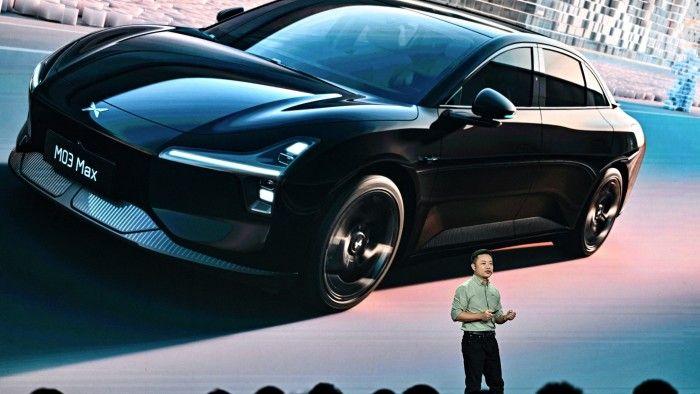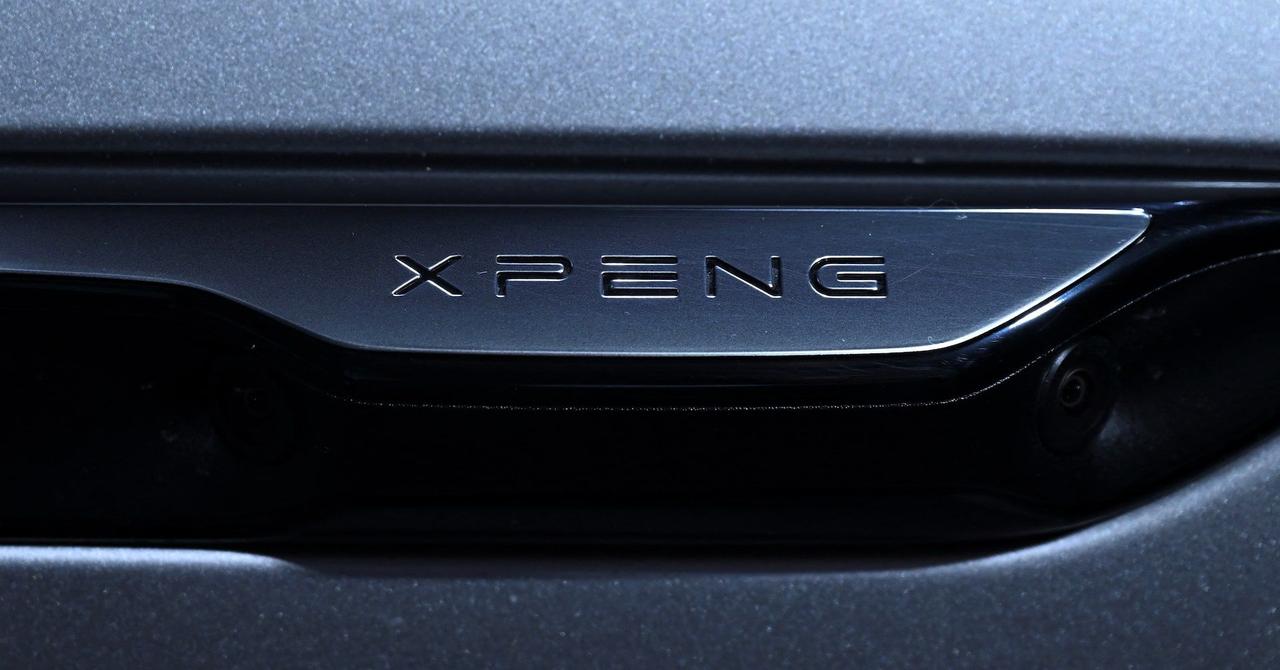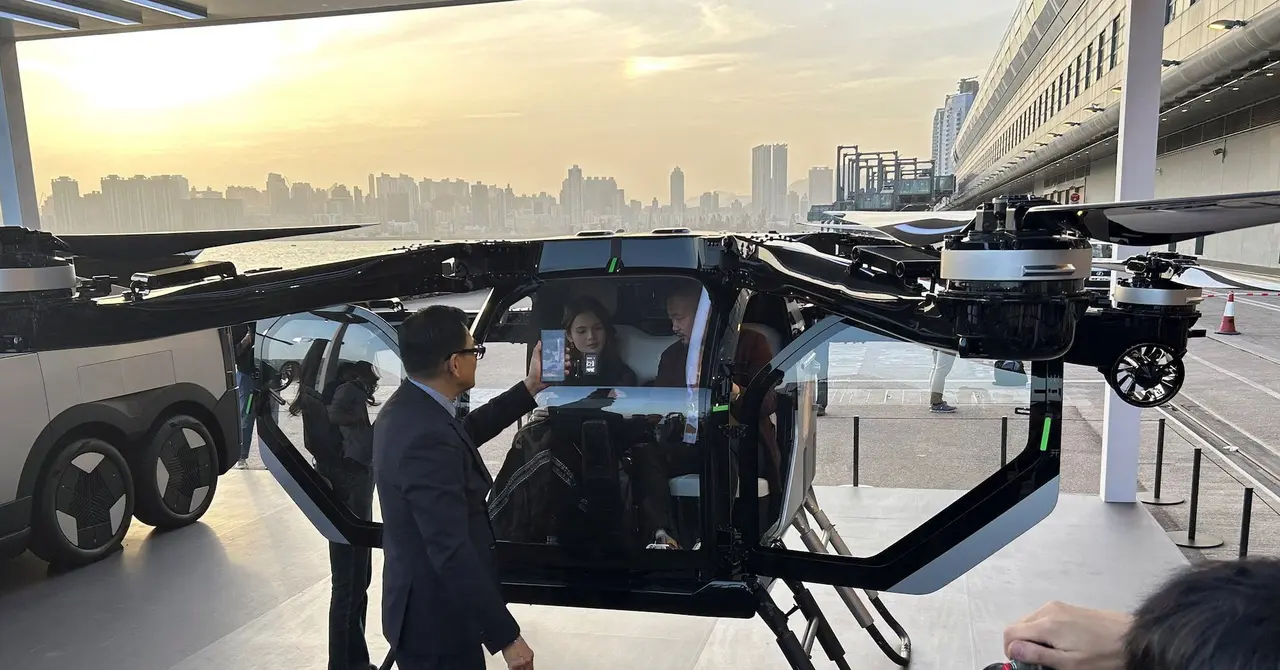Xpeng's Advanced AI Chip Challenges Nvidia, Set to Power Volkswagen's Chinese Models
2 Sources
2 Sources
[1]
Chinese carmaker Xpeng develops advanced chips for VW cars
Chinese carmaker Xpeng says it has developed chips for autonomous driving that are more powerful than Nvidia's products and it expects Volkswagen and other auto rivals to be customers. He Xiaopeng, Xpeng's co-founder and chief executive, said it was working to integrate its self-designed Turing artificial intelligence chip into select car models VW planned to launch in China next year. "Developing chips is fundamentally a long-term commitment, as Xpeng envisions doing a lot of things across cars, aircraft and robotics. We need a type of chip that can support these platforms and also power our [AI] large language model," he told the Financial Times in an interview. The company was also in discussions to supply chips to other car manufacturers. "We are looking for long-term partners," he said. Following the interview, Xpeng clarified that talks with VW and other companies about using the chips were ongoing. A VW spokesperson in China said: "As announced, Volkswagen and Xpeng are jointly developing two Volkswagen brand cars for the mid-class segment. Both parties contribute their respective strength. These cars will be launched next year." Xpeng's new product is the latest sign of progress in chip design in China, which has for decades sought to reduce its dependence on foreign-made semiconductors. In the auto sector, high-end AI chips are increasingly needed to develop and run advanced driver assistance and autonomous driving systems. Xpeng's decision to sell its chip technology to rival carmakers also reflects the deepening reliance of foreign auto groups on Chinese technology amid a period of intense competition as China transitions to electric vehicles. Global carmakers have also tried, but struggled, to develop chips in-house to reduce their reliance on technology groups, especially in the wake of the Covid-19 chip shortage. In 2023, the German group invested $700mn for a 5 per cent stake in Xpeng, part of a broader plan to survive as the world's biggest car market transitions to EVs. Hundreds of VW engineers have been working with Xpeng's in their respective plants in Hefei and Guangzhou to improve the German group's smart-driving expertise. Xpeng is ploughing Rmb5bn ($700mn) a year into developing AI-related technologies -- about half of the Guangzhou-based group's total research and development spending. This had helped Xpeng become the first Chinese carmaker to launch autopilot functions for expressways and a fully voice-controlled smart cabin system, said He. Seated in the newly unveiled G7 sport utility during the interview, the 47-year-old asked the in-car voice assistant, dubbed "Little P", to increase the air conditioner's fan speed. He then pointed to two Turing chips installed beneath the front armrest and one more under the passenger-side footwell and said they boasted computing power of 2,200 tera-operations per second (TOPS) -- a metric to measure how many trillion operations a processor can perform in one second. A typical TOPS range for vehicles available in the Chinese market is between 80 and 700, implying Xpeng's latest model is three to 28 times more powerful than most of its rivals, He said. "The effective computing power of the Turing AI chip is three times greater than that of the leading autonomous driving chip, Orin-X," He claimed at a launch event for the G7 car on Wednesday, referring to the processor made by American tech group Nvidia. Xpeng aims to scale its chip business to recoup its substantial investments in recent years. "Someone told me that selling 1mn chips would make the business profitable. But I'll wait until we actually hit 1mn before deciding if that holds true," He said. In the auto sector, Xpeng is among a clutch of Chinese companies challenging western groups such as Nvidia and Qualcomm. They include EV maker Nio, tech group Huawei, Horizon Robotics and Black Sesame Technologies. As of the end of April, Xpeng had 6 per cent of pure battery EV sales in China, trailing only BYD, Geely, SAIC, Tesla and Chang'an in market share, according to Automobility data.
[2]
Xpeng Says Its New Self-Driving Chip Is 3x More Powerful Than Nvidia's, Will Power VW Cars - XPeng (NYSE:XPEV)
Xpeng XPEV has developed chips for autonomous driving with Volkswagen VWAGY and other auto rivals as potential customers. The Chinese EV maker said that its chips could beat that of Nvidia Corp. NVDA. He Xiaopeng, Xpeng's co-founder and CEO, told the Financial Times during a launch event for the G7 car on Wednesday that the company was integrating its Turing artificial intelligence chip into select Volkswagen car models it planned to launch in China in 2025. Also Read: Tesla's Chinese Rivals See Huge April Growth, XPeng Surges 273% In Deliveries Xiaopeng said the Turing AI chip's computing power is three times greater than that of Nvidia's autonomous driving chip, Orin-X. Xiaopeng said the company aimed to develop a chip capable of supporting cars, aircraft, and robotics and power its AI model. The company also explored supplying chips to other car makers. Global carmakers have struggled to develop in-house chips to reduce dependence on technology companies, with the 2020 pandemic further deteriorating the chip crisis. Therefore, in 2023, Volkswagen acquired a 5% stake in Xpeng for $700 million. Volkswagen engineers collaborated with Xpeng in their respective plants in Hefei and Guangzhou to boost the German group's smart-driving expertise. Xpeng committed 5 billion Chinese yuan ($700 million) annually to developing AI-related technologies, nearly 50% of its total research and development spending. Xpeng stock surged over 173% in the last 12 months. The company debuted the latest all-electric G7 SUV in China, bagging over 10,000 pre-orders in under 46 minutes, pitting it against Tesla Inc.'s TSLA cheapest vehicle in China, the Model 3. Price Action: XPEV stock is trading lower by 2.55% to $19.91 premarket at last check Thursday. Read Next: XPeng Unveils New AI-Powered Sports EV With Smart Driving And Luxury Tech Photo by THINK A via Shutterstock XPEVXPeng Inc$19.93-2.44%Stock Score Locked: Edge Members Only Benzinga Rankings give you vital metrics on any stock - anytime. Unlock RankingsEdge RankingsMomentum97.54Growth22.20QualityNot AvailableValue57.33Price TrendShortMediumLongOverviewNVDANVIDIA Corp$141.39-1.01%TSLATesla Inc$322.76-1.12%VWAGYVolkswagen AG$10.953.50%Market News and Data brought to you by Benzinga APIs
Share
Share
Copy Link
Chinese EV maker Xpeng develops powerful AI chips for autonomous driving, claiming superiority over Nvidia's products. The company plans to integrate these chips into Volkswagen's upcoming models in China, signaling a shift in the global automotive AI landscape.
Xpeng's Breakthrough in AI Chip Development
Chinese electric vehicle manufacturer Xpeng has announced the development of advanced chips for autonomous driving, claiming superior performance to industry leader Nvidia's products
1
. The company's co-founder and CEO, He Xiaopeng, revealed that Xpeng is working to integrate its self-designed Turing artificial intelligence chip into select Volkswagen car models planned for launch in China next year1
.Powerful Performance and Ambitious Goals
During the launch event for Xpeng's new G7 sport utility vehicle, He Xiaopeng showcased the Turing chips, boasting a computing power of 2,200 tera-operations per second (TOPS)
1
. This performance is claimed to be three times greater than Nvidia's leading autonomous driving chip, Orin-X2
. The significant leap in processing power positions Xpeng's chips at the forefront of autonomous driving technology.
Source: FT
Strategic Partnerships and Market Expansion
Xpeng's decision to sell its chip technology to rival carmakers reflects the growing interdependence between global auto groups and Chinese technology
1
. Volkswagen, which invested $700 million for a 5% stake in Xpeng in 2023, is set to be one of the first beneficiaries of this advanced chip technology1
2
. The collaboration extends beyond chip integration, with hundreds of VW engineers working alongside Xpeng's team to enhance the German group's smart-driving expertise1
.Investment in AI and Future Technologies
Xpeng is investing heavily in AI-related technologies, allocating approximately 5 billion yuan ($700 million) annually, which accounts for about half of the company's total research and development spending
1
. This substantial investment has enabled Xpeng to pioneer features such as autopilot functions for expressways and a fully voice-controlled smart cabin system1
.Implications for the Global Automotive Industry
The development of these advanced chips by Xpeng signifies progress in China's semiconductor industry, which has long sought to reduce dependence on foreign-made chips
1
. It also highlights the intensifying competition in the electric vehicle market, particularly in China, where the transition to EVs is rapidly accelerating1
.Related Stories
Xpeng's Market Position and Future Prospects
As of April, Xpeng held 6% of pure battery EV sales in China, ranking behind BYD, Geely, SAIC, Tesla, and Chang'an in market share
1
. The company's latest G7 SUV has garnered significant attention, receiving over 10,000 pre-orders in under 46 minutes, positioning it as a strong competitor to Tesla's Model 3 in the Chinese market2
.Challenges and Opportunities Ahead
While Xpeng's chip development represents a significant technological achievement, the company faces the challenge of scaling its chip business to recoup substantial investments
1
. He Xiaopeng acknowledged the potential profitability threshold of selling 1 million chips but remains cautious about making definitive projections1
.As the automotive industry continues its rapid evolution towards electric and autonomous vehicles, Xpeng's advancements in AI chip technology position the company as a key player in shaping the future of transportation. The success of its partnership with Volkswagen and potential collaborations with other automakers could significantly influence the global automotive landscape in the coming years.
References
Summarized by
Navi
Related Stories
Recent Highlights
1
Google Gemini 3.1 Pro doubles reasoning score, beats rivals in key AI benchmarks
Technology

2
ByteDance's Seedance 2.0 AI video generator triggers copyright infringement battle with Hollywood
Policy and Regulation

3
ChatGPT cracks decades-old gluon amplitude puzzle, marking AI's first major theoretical physics win
Science and Research








